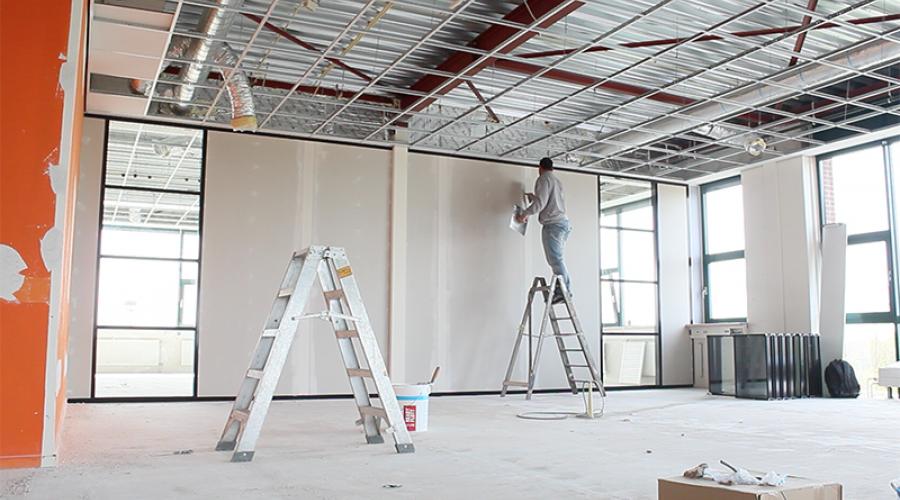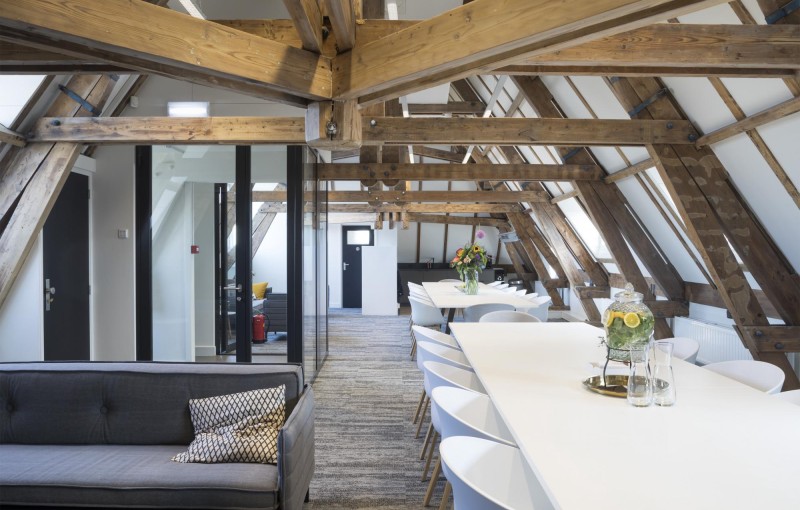
Renovating office space: what is allowed and what is not?

You have rented office space for your business. Now the next step is coming. Decorating your new office according to your own taste and wishes. But are you allowed to make alterations to your office space?
Alterations to the leased property
When buying an office, you are allowed to make alterations to the premises without needing a permit and/or permission. For expanding, (re)building or renovating the office from the outside, you usually need an environmental permit and you have to comply with the rules of the Buildings Decree. In this case, you have to deal with rules that relate to, among other things, safety, health, the surroundings and the neighbours. For example, with zoning plans, external appearance requirements, building regulations and building codes. All buildings must comply with these rules, even if no permit is required.
Renovating office space that you rent
When you rent office space, you have two main obligations: paying the rent and careful use of the space. As a tenant you are not allowed to deliberately destroy the rented office space. Neither should you use the office space in such a way that it is damaged faster than the normal way. As a tenant, you must therefore exercise the usual care when using the building.
"Changes cannot be made without the landlord's consent”
When renting office space, you are more limited in your choices and the landlord has already made many choices for you. The main rule is therefore: no changes can be made without the landlord's permission. The law assumes that the tenant is not allowed to change the leased space during the lease period, unless there are changes that can be undone and removed without significant costs at the end of the lease. Breaking away walls, applying stone strips to the wall, applying scrapings to the ceiling, installing a kitchen, a central heating system, etc. are all matters for which the tenant requires the landlord's permission. The statutory regulation is laid down in Section 7:215 of the Civil Code. The regulation is semi-coercive, unless it concerns the outside of the office. For the outside, the regulation is regulatory law.
Section 7:215 of the Dutch Civil Code does not have a semi-mandatory effect on alterations and additions to the exterior of leased office space. Pursuant to Section 7:215 (6) of the Dutch Civil Code, the lessor may prohibit the lessee from making such alterations. This means concretely that the landlord may prohibit certain alterations to the outside of the leased office in the lease regulations, which cannot be prohibited for the inside.
Alterations to a monumental office building
In general, you will need an environmental permit for any alteration to your protected monument. For demolition work, moving or rebuilding your monument, you will undoubtedly have to consider this. But you also need a permit for painting the façade in a different colour or replacing historic glass in a window, for example. Are you planning to change the interior? A permit is required for alterations to interior components with monumental value, such as stucco ceilings or historic wall panelling. This is readily available in the city centre of Amsterdam.
Advertising on the office building
Does the office building in which you are located lend itself perfectly to facade advertising? Would you like to advertise on the office building, for example with a billboard or light box? Or do you want to use one or more large, freestanding advertising objects? Then you usually need an environmental permit. You can apply for this from the municipality. Is the building a monument? If so, the monument committee will assess your application. In some municipalities you also have to pay an advertising or precario tax for advertising that is visible from the public road.
Smoking ban at the workplace
Smoking is prohibited in the workplace and in public buildings and spaces, such as hospitals, concert halls and airports. At the office, you can only smoke in separate smoking rooms. An employer can set up an area for this, but this is not compulsory. Company vehicles are also workplaces. The smoking ban therefore also applies to lease cars and lorries, even if no one is driving them. The Dutch Food and Consumer Product Safety Authority (NVWA) supervises compliance with the Tobacco Act. The inspectors of the Netherlands Food and Consumer Product Safety Authority (NVWA) carry out inspections. The NVWA does this in all public areas where smoking is prohibited. NVWA inspectors come by unannounced. The inspector may inspect any room.


